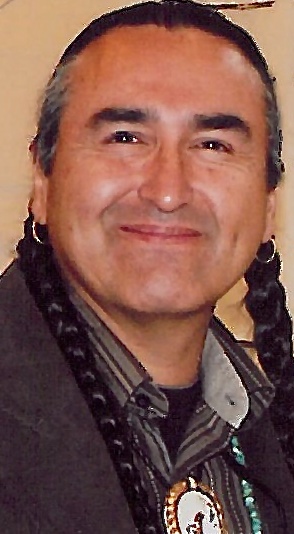Richard Twiss: One Church Many Tribes
 Richard Twiss, One Church Many Tribes (Regal Books, 2000), 216 pages.
Richard Twiss, One Church Many Tribes (Regal Books, 2000), 216 pages.
What can the church of the 21st Century learn from the mistakes of the past?
Richard Twiss could be a budding new personality in the Christian world. I recently noticed his name on a column in Charisma magazine, and this new book has endorsements by many well known, respected Christians and I was asked to review it for the Pneuma Review.
The book features a photograph of Richard all decked out in his native clothes on its cover. Twiss is an American Indian, which is nomenclature he does not like since it tends to demean his culture. He also does not like native American and instead asks all of us that come from family origins different than his, call Richard and others of his culture First Nations People, an expression which I have adopted but still find difficult to use.
Twiss’ book repeats comments I had earlier heard from Pastors who ministered to the First Nations People, comments that deal with the lack of success the church has experienced as it reached out to our country’s original inhabitants. The book also criticizes many of the political decisions the elected and appointed officials of the US have made about First Nations People. Richard resents that his ancestors openly offered friendship to those who left Europe for the new world, but were instead exploited and ignored by what today’s Americans call our founding fathers.

Richard Twiss (1954-2013).
All of us familiar with early and not so early missionary effort realize that the early missionary often confused piety with the fashion that existed in the culture from which the missionary came. That confusion led to banning many local expressions of praise and worship being offered by the new believer to God on High. In retrospect, we now teach our potential missionary to become part of the culture to which they are sent and not to reform the culture. Careful reading of Paul’s theology and his missiology leads to the conclusion that Paul knew and practiced what we missed. Better results are obtained when we work within a culture and not when we attempt to replace that with things dear and familiar to our ideas. The question “How then shall we live?” has answers that vary from people group to people group. Twiss’ book reads easily and quickly. I would describe much of his discussion as a lament over what could have been, a polemic over what should have been and as a hope over what might now be experienced in his native culture. Twiss has a burden for his people and he needs our help and understanding to undo some of the errors that were made trying to reach the First Nations People. It can be done. We can be one people.
Category: Living the Faith, Spring 2001


